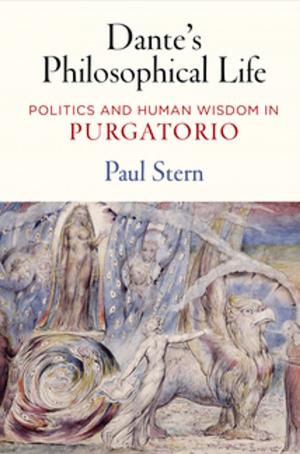Seeing the Myth in Human Rights
Nonfiction, Religion & Spirituality, Christianity, Church, Church & State, Social & Cultural Studies, Political Science| Author: | Jenna Reinbold | ISBN: | 9780812293586 |
| Publisher: | University of Pennsylvania Press, Inc. | Publication: | November 8, 2016 |
| Imprint: | University of Pennsylvania Press | Language: | English |
| Author: | Jenna Reinbold |
| ISBN: | 9780812293586 |
| Publisher: | University of Pennsylvania Press, Inc. |
| Publication: | November 8, 2016 |
| Imprint: | University of Pennsylvania Press |
| Language: | English |
The 1948 Universal Declaration of Human Rights has been called one of the most powerful documents in human history. Today, the mere accusation of violations of the rights outlined in this document cows political leaders and riles the international community. Yet as a nonbinding document with no mechanism for enforcement, it holds almost no legal authority. Indeed, since its adoption, the Declaration's authority has been portrayed not as legal or political but as moral. Rather than providing a set of rules to follow or laws to obey, it represents a set of standards against which the world's societies are measured. It has achieved a level of rhetorical power and influence unlike anything else in modern world politics, becoming the foundational myth of the human rights project.
Seeing the Myth in Human Rights presents an interdisciplinary investigation into the role of mythmaking in the creation and propagation of the Universal Declaration. Pushing beyond conventional understandings of myth, which tend to view such narratives as vehicles either for the spreading of particular religious dogmas or for the spreading of erroneous, even duplicitous, discourses, Jenna Reinbold mobilizes a robust body of scholarship within the field of religious studies to help us appreciate myth as a mode of human labor designed to generate meaning, solidarity, and order. This usage does not merely parallel today's scholarship on myth; it dovetails in unexpected ways with a burgeoning body of scholarship on the origin and function of contemporary human rights, and it puts the field of religious studies into conversation with the fields of political philosophy, critical legal studies, and human rights historiography. For Reinbold, myth is a phenomenon that is not merely germane to the exploration of specific religious narratives but is key to a broader understanding of the nature of political authority in the modern world.
The 1948 Universal Declaration of Human Rights has been called one of the most powerful documents in human history. Today, the mere accusation of violations of the rights outlined in this document cows political leaders and riles the international community. Yet as a nonbinding document with no mechanism for enforcement, it holds almost no legal authority. Indeed, since its adoption, the Declaration's authority has been portrayed not as legal or political but as moral. Rather than providing a set of rules to follow or laws to obey, it represents a set of standards against which the world's societies are measured. It has achieved a level of rhetorical power and influence unlike anything else in modern world politics, becoming the foundational myth of the human rights project.
Seeing the Myth in Human Rights presents an interdisciplinary investigation into the role of mythmaking in the creation and propagation of the Universal Declaration. Pushing beyond conventional understandings of myth, which tend to view such narratives as vehicles either for the spreading of particular religious dogmas or for the spreading of erroneous, even duplicitous, discourses, Jenna Reinbold mobilizes a robust body of scholarship within the field of religious studies to help us appreciate myth as a mode of human labor designed to generate meaning, solidarity, and order. This usage does not merely parallel today's scholarship on myth; it dovetails in unexpected ways with a burgeoning body of scholarship on the origin and function of contemporary human rights, and it puts the field of religious studies into conversation with the fields of political philosophy, critical legal studies, and human rights historiography. For Reinbold, myth is a phenomenon that is not merely germane to the exploration of specific religious narratives but is key to a broader understanding of the nature of political authority in the modern world.















